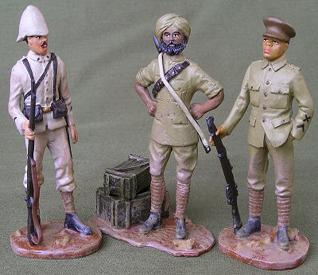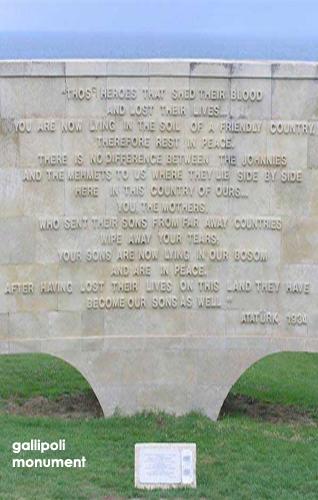History
Sikh Sacrifices at Gallipoli
by DEV NADKARNI
Few of us Kiwis - especially of the younger generation - know that the spirit of Anzac Day, which has such solemn significance to New Zealanders and Australians, has a deep Sikh connection.
Anzac Day, which was observed last Saturday, as we all know is observed to perpetuate the memory of over 8,000 Australians and nearly 3,000 New Zealanders who laid down their lives fighting for the British Empire on the Gallipoli Peninsula in the course of World War I.
The Gallipoli campaign resonated profoundly among all nations involved. For New Zealand and Australia, the campaign was the first major battle undertaken by a joint military formation, the Australian and New Zealand Army Corps (ANZAC), and is often considered to mark the birth of national consciousness in both of these countries.
Observance of the day has never diminished in importance over the generations; in fact as its century approaches, the fervour is only increasing. While many Sikh-Kiwis participate in Anzac Day activities like the Dawn Service and parades all over the country, few of us are aware of the role Sikh soldiers played in the Gallipoli campaign that ran from April 25, 1915 to January 9, 1916.
Being subjects of the Crown under British rule in India, Sikhs and Indians had no choice but to participate in World War I - a war that was certainly not of their making and a war that they were sent to fight in simply because they were recruits of the British Indian Army.
Of the estimated 47,000 and odd Indian soldiers - many of them Sikhs - that were killed during the four-year war, which also saw over 65,000 Indians wounded, 1,358 died in the Gallipoli campaign and some 3,421 were injured. Fewer Indians than New Zealanders and Australians died at Gallipoli, but their number was significant.
Records tell us that 371 who died fighting at Gallipoli on June 3 and 4, 1915, were from the battalion of the 14th Sikh regiment. General Sir Ian Hamilton was in charge of the troops against the Turks during that operation and he wrote glowingly of this regiment that fought valiantly.
In a letter to his Commander-in-Chief back in India, he wrote: "In spite of the tremendous losses there was not a sign of wavering all day. Not an inch of ground was given up and not a single straggler came back.
"The ends of the enemy's trenches were found to be blocked with the bodies of Sikhs and of the enemy who died fighting at close quarters, and the glacis slope was thickly dotted with the bodies of these fine soldiers all lying on their faces as they fell in their steady advance on the enemy.
"The history of Sikhs affords many instances of their value as soldiers, but it may be safely asserted that nothing finer than the grim valour and steady discipline displayed by them on the 4th of June has ever been done by soldiers of the Khalsa.
"Their devotion to duty and their splendid loyalty to their orders and to their leaders make a record their nation should look upon with pride for many generations."
This battle involving the 14th Sikh regiment has been honoured with a mention in monuments in the United Kingdom, though there aren't many records of the thousands of others who died elsewhere fighting for the Crown in other war theatres during World War I.
While honouring New Zealand soldiers, we Kiwis must also make special efforts to perpetuate the memory of all the valiant soldiers who laid down their lives including the Sikh regiment that fought alongside New Zealanders and Australians at Gallipoli - besides the unnamed thousands who died during the four year war.
April 25, 2010 - Anzac Day
Conversation about this article
1: Roopinder Singh Bains (Surrey, British Columbia, Canada), April 25, 2010, 6:45 PM.
Finally the Sikh sacrifice for western freedom is getting some recognition.
2: Gur Singh (Boston, Massachusetts, U.S.A.), April 25, 2010, 8:35 PM.
"Finally, we that live on can never forget those comrades who in giving their lives gave so much that is good to the story of the Sikh Regiment. No living glory can transcend that of their supreme sacrifice, may they rest in peace. In the last two World Wars, 83,005 turban wearing Sikh soldiers were killed and 109,045 were wounded. They all died or were wounded for the freedom of Britain and the world and during shell fire, with no other protection but the turban, the symbol of their faith." [General Sir Frank Messervy, KCSI, KBE, CB, DSO]
3: Surinder (Massachusetts, U.S.A.), April 25, 2010, 9:42 PM.
I cannot be heartless, but I cannot be blind either. The other side of the truth is that the Sikhs were fighting for the British, under British command, for the protection and glory of Britannia. These were European wars, not of our creation. They were a culmination of centuries of very murky politics. There was nothing dharmic about these wars, and there was no reason for us to shed our blood in the fruitless wars. How did the British repay us? They planned and encouraged Pakistan and millions of Sikhs were ethnically cleansed from what is now Pakistan. Millions killed, millions raped. Our holy sites like Nankana Sahib left behind. From the places that we had inhabited since the dawn of history, we were ousted by the wiley British. Where was the British Indian army, the mighty Sikh Regiments in 1947, when Sikh were killed like rats in the streets of Lahore, Gujranwala and Rawalpindi. Those who ensured that the British were safe, lost their homes and hearths and became refugees. This is an interpretation, although not a popular one in certain Sikh circles.
4: Ranjeet (Southampton, England), April 30, 2010, 4:48 AM.
This example of the 14th Sikh Regiment was cited in the case for the Motor-Cycle Crash Helmets (Religious Exemption) Act 1976 in the United Kingdom. As a result of such examples, this act was passed. So these souls who passed away on the shores of Gallipoli, fighting for, yes, British Imperialism actually, gave us, as Sikh-Britons, more than just their lives, they gave us precedent. It's because of their actions, staying 'true to their salt', that Sikh-Britons are who we are, and we owe our position in British society to them, and them alone.
5: Dr Darminder Singh Chadha (York. England), August 02, 2012, 4:31 AM.
I am at present compiling a few articles for educating the British people that how much sacrifices have been made for the Empire. From 1857 to 1947, in different theatres of war. The Kohima Memorial epitaph says it all: "When you go home, tell them of us and say, for your tomorrow we gave our today." The words are attributed to John Maxwell.




